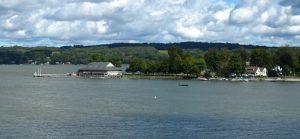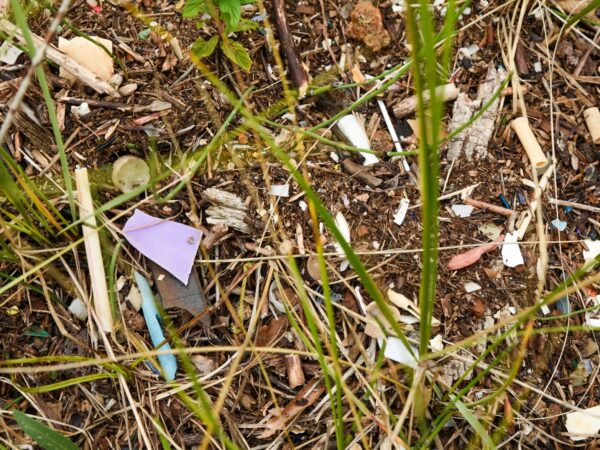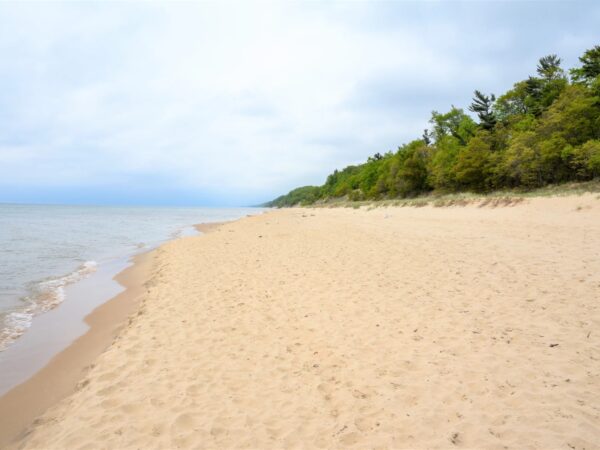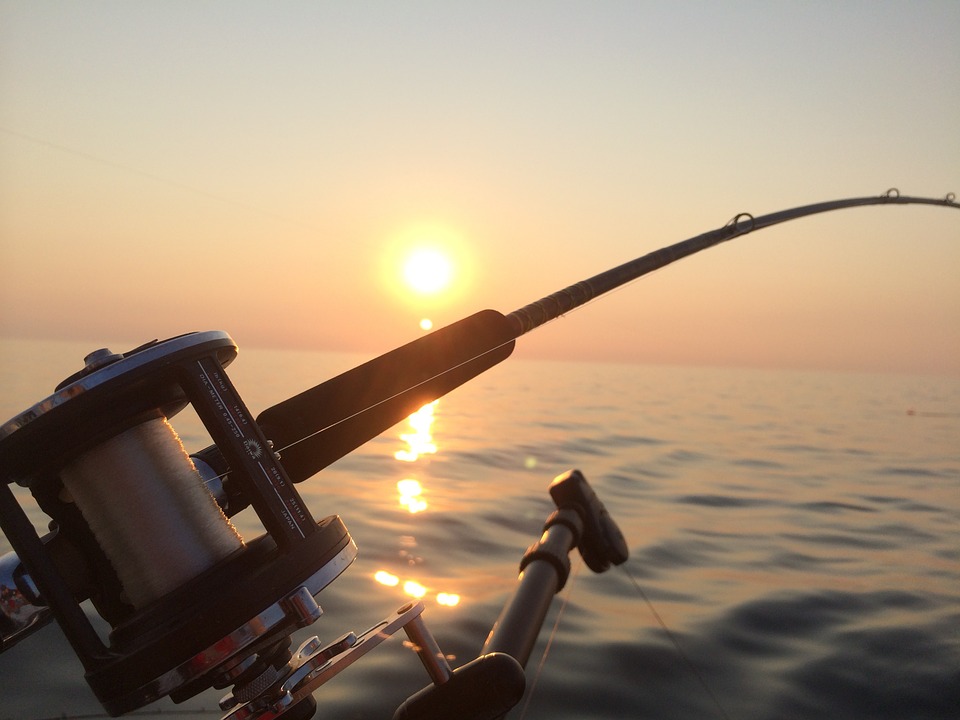
From Anglers to Activists to Citizen Scientists
I fished with long-time charter captain Larry Jones on upstate New York’s Lake Chautauqua two weeks ago as a big low-pressure system and cold front moved in. “We’re going to have to work hard for them,” he advised. And we did.
The same thing can be said of charter fishing industry officials and leaders on all the Great Lakes: the pressure is on, and a handful of captains on the lakes work hard to ensure a satisfactory future for the lakes, the fisheries and those who count on them for a living and for recreation.
And it’s a never-ending battle for those few.
“It’ll never be solved – there’ll just be more coming down the road,” said Bill Winowiecki, vice-president of the Michigan Charter Boat Association (MCBA.) “There’s always something else.”
The list of issues facing MCBA members is long from working with Michigan Department of Natural Resources (MDNR) officials to a sometimes contentious relationship with federal wildlife officials and the five Native American tribes which hold great sway over fishing rights on more than 13 million acres in the state.
“It’s just not a very fun deal. It’s time-consuming and aggravating,” Winowiecki said, noting complex tribal issues are part of the equation. “I spend as much time on behind-the-scenes things as I do on fishing.” State, tribal, federal and sport fishing representatives have recently been aiming to hammer out a deal to replace a decades-old fish management agreement that expires in 2020.
“We’ve managed to keep the lake from crashing”
Currently, he and others are also working to keep the delicate balance of sportfish and baitfish, such as chinook salmon and alewives, at optimum levels. “From a biological perspective we’re looking to protect the lake. We’re working with the DNR and so far we’ve managed to keep the lake from crashing,” Winowiecki explained.
Wionwiecki’s been a charter captain for about 15 years and has been vice-president for about two. He runs mostly lake trout and salmon charters out of Glen Arbor, northwest of Traverse City on Lake Michigan. Like many who have dual roles he spends a lot of time in meetings and on the telephone.
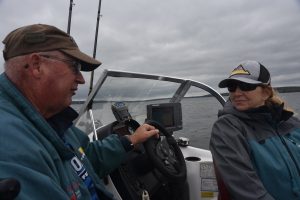
Charter captain Larry Jones talks muskie fishing with fly-fishing guide Julie Szur, Photo by James Proffitt
Larry Jones’ story isn’t much different. He spends a lot of time fishing for big muskellunge on Lake Erie and the Niagara River near Buffalo, and for several months each winter operates a fly-fishing guide service deep in the jungles of Guyana in South America. When at home he’s deep in meetings. Way deep.
“I was vice-president of the Eastern Lake Erie Charter Boat Association for five years and have been president for eight years,” he explained. “And I’m involved in just about everything you could possibly think of. I fish during the day and go to meetings at night.”
Jones estimates he attends a good 15 meetings a month. The Chautauqua Lake and Watershed Management Alliance, an organization which Jones helped establish, has skirmished with proponents involved in herbicide applications on the lake. Jones said the applications are having far-wider implications than simple weed control and are also covering more area than intended. “Mostly destruction of habitat,” Jones said. Another sport fishing battle Jones and others waged involved The Chautauqua Institution’s private sewage treatment plant.
“He brought his own bloodworms….for show and tell”
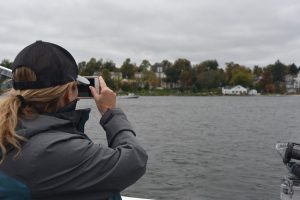
Upgrade of private community Chautuaqua Institute’s wastewater plant, Photo by James Proffitt
“Up until a few years ago the Chautauqua sewage plant was dumping raw sewage,” Jones explained. “You’d pull up your baits and find bloodworms.” The worms are the larvae of midge flies, and indicative of poorly managed waste treatment. According to Jones, during the summer when visitors to Chautauqua were at a peak, the plant could often not process all waste. Jones said he attended one public meeting and brought his own bloodworms, straight from the lake, for show-and-tell. He said in the end the pressure worked and millions of dollars were invested to enlarge and upgrade the plant, solving the problem.
In Lake Erie’s Western Basin, where an army of issues seems to be marching against the lake, no one’s as busy as Dave Spangler. He’s been a charter captain on the lake for nearly three decades and wears many hats. He’s the vice-president of the Lake Erie Charter Boat Association, president of Lake Erie Waterkeeper, board member of the Lake Erie Shores and Islands and Lake Erie Foundation and on the advisory council of Ohio Sea Grant. And yes, Spangler said, he does occasionally get to go fishing. “I have to pick and choose when I go,” he explained. “I usually fish about 50 trips a year.”

Dave Spangler, Vice-President Lake Erie Charter Boat Association, Photo by lakeeriefoundation.org
Spangler said he hasn’t always spent time advocating on behalf of the lake. It all began less than a decade ago. “That’s come along as things have progressed downhill for the lake,” he explained. “That’s really when I started with organizations and trying to get people educated on what’s going on.”
Over the course of a year, Spangler attends about 100 events including meetings, trips and presentations. He travels to Washington D.C. once or twice each year to meet with federal elected officials and to Columbus to meet with state elected officials. In the capitol, Spangler said, he and others have to fight to make sure Great Lakes Restoration Initiative funds are secured and utilized appropriately. “They always want to try to take that away,” he said. The GLRI has distributed more than $3 billion to fund a variety of lakes-related projects since 2010.
Spangler spends many hours meeting with farmers and agriculture officials discussing the Lake Erie algae bloom issues. “Because they’re the bigger part of the problem they need to be the bigger part of the solution,” he said, going on to explain that he always asks the farmers in attendance to speak with their friends who don’t come to meetings or presentations.
“No, it’s volunteer, all my time”
And like the other charter captains-turned-Great Lakes advocates, there is no pay. In fact, Winowiecki laughed when asked if there was any money for the extra work.
“No, it’s all volunteer, all my time,” he said. And the reason is simple, Winowiecki explained. “When I was 12 years old, Lake Michigan didn’t really have a commercial fishery. When I got into high school then we had lake trout and I thought ‘Wow, these are pretty big fish. This is neat.’”
And, he said he hopes some younger charter captains get involved soon. “I know these days it’s a fast-paced society and most people are working two jobs,” Winowiecki said, “but this is pretty important. You can go out and catch a fish in all the Great Lakes but when I was a kid you couldn’t do that. It’s like that now because of all the people working behind the scenes.”
Likewise, Jones and Spangler don’t do it for the money (since there is none) but for the love of the lakes. “I do it because I want to help the lake and get it back to where it should be,” Spangler said. I don’t want the lake to turn around and go back to where it was in the 60’s and 70’s. Lake Erie is the greatest resource the state of Ohio has. Even if people don’t fish on the lake or visit the lake, there are still 11 million people who rely on Erie for drinking water.”
Featured Image: Charter fishing at Sunrise, Photo by unknown via maxpixel.net cc 0.0


